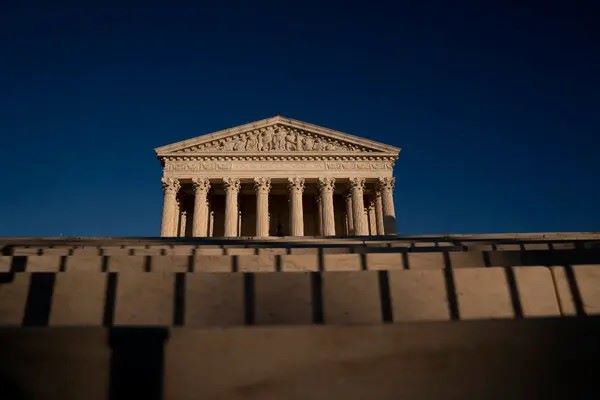U.S. News
Prosecutors Petition Supreme Court to Dismiss Trump’s Claim of Immunity in Election Case
In a significant legal showdown, Jack Smith, the special counsel tasked with prosecuting former President Donald J. Trump on allegations of orchestrating efforts to overturn the 2020 election, has made a fervent plea to the Supreme Court. Smith adamantly urged the highest court in the land to dismiss Trump’s claim of immunity from prosecution. The case, slated for argument on April 25, has sparked intense scrutiny given its unprecedented nature and potential ramifications for presidential accountability.
The Legal Argument
In a comprehensive filing submitted on Monday, Smith delineated the crux of his argument, asserting that the President’s constitutional duty to uphold the law does not grant him carte blanche immunity to flout it. He emphasized the gravity of the situation, noting the novelty of prosecuting a former president for such offenses. Smith underscored that the absence of past prosecutions of former presidents does not establish immunity but rather underscores the uniqueness of Trump’s alleged misconduct.
Upholding Constitutional Principles
Central to Smith’s plea is the preservation of fundamental legal principles. He stressed that no individual, not even the President, is above the law. Smith contended that the Constitution does not confer upon the President the authority to engage in actions that undermine the integrity of the electoral process or defraud the nation. The case, he argued, hinges on the core principle of accountability, essential for the maintenance of a healthy democracy.
Call for Expedited Action
Recognizing the urgency of the matter, Smith urged the justices to expedite proceedings. Despite the court’s prior commitment to an expedited schedule, the timeline remains a concern. Any delay, Smith warned, could potentially impact the timing of the trial, with implications for the upcoming presidential campaign.
Historical Precedents and Preceding Cases
Smith’s argument drew upon historical precedents, notably the Supreme Court’s 1974 ruling in United States v. Nixon, which rejected claims of executive privilege, and distinguished it from Nixon v. Fitzgerald, emphasizing that absolute presidential immunity does not extend to criminal cases.
Implications and Ongoing Proceedings
According to a Ny Times report, the case, Trump v. United States, No. 23-939, marks one of three legal battles involving Trump’s alleged misconduct on the Supreme Court’s docket. With immense stakes involved, Smith highlighted the severity and democracy-threatening nature of the alleged crimes, emphasizing the need for swift and decisive legal action.
As the legal battle intensifies, the Supreme Court faces a pivotal decision that could have far-reaching consequences for presidential accountability and the rule of law. Smith delivered an impassioned plea, emphasizing the gravity of the situation. He urged the court to uphold constitutional principles and reject any notion of presidential immunity from prosecution.
Obtain a two-year subscription to The Wall Street Journal Print Edition, inclusive of daily delivery spanning six days each week. As an added benefit, this procurement provides access to The WSJ Digital edition, compatible with iPhone, Android, and PC. This subscription assures your connection to the latest developments in finance, politics, healthcare, and global news. Seize the opportunity to benefit from expert commentaries and dependable analyses. To purchase a subscription, call WSJ Cell Phone: (800) 581-3716

